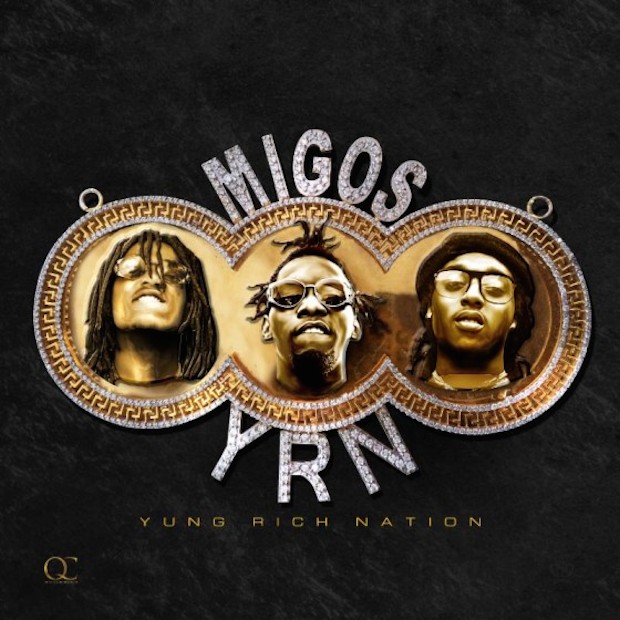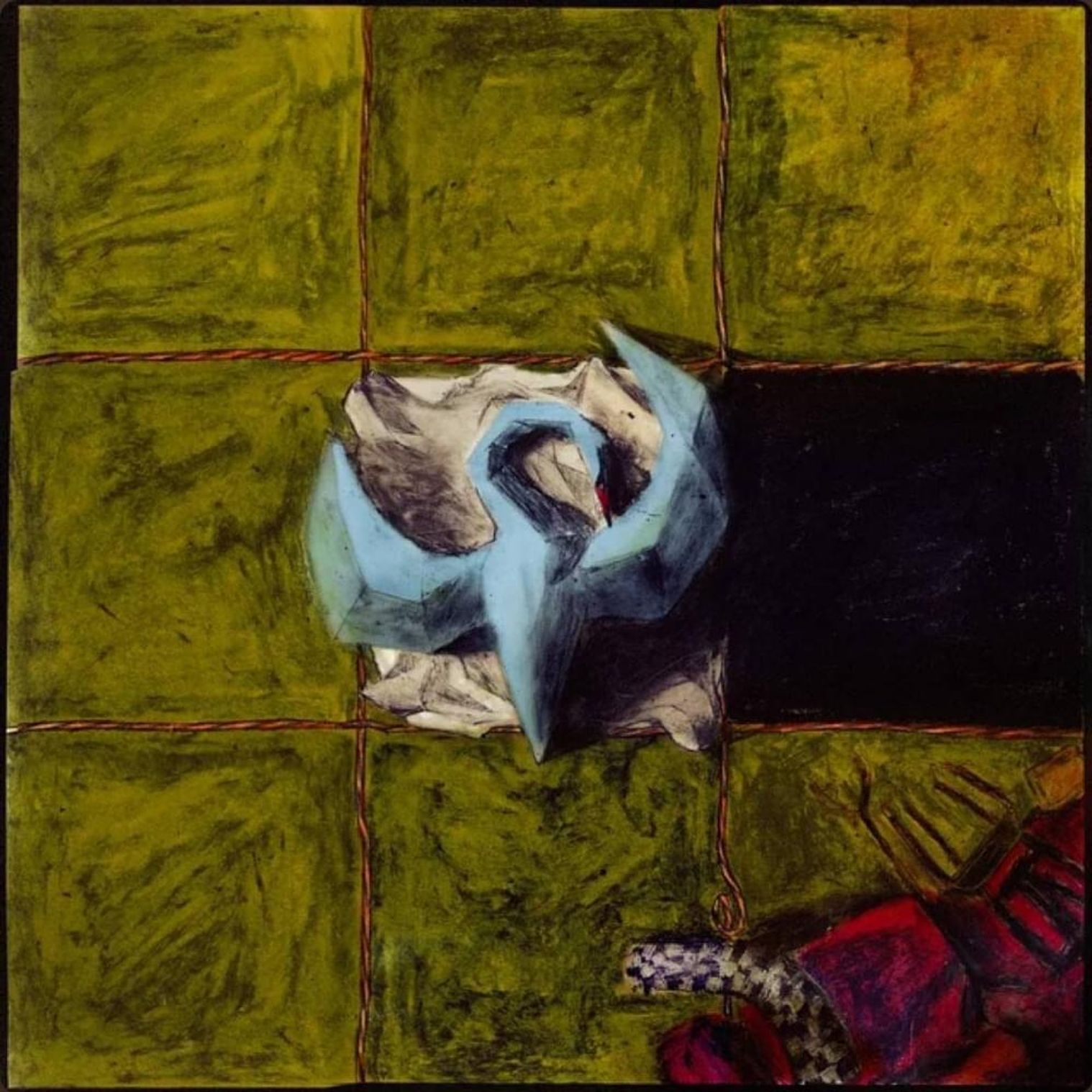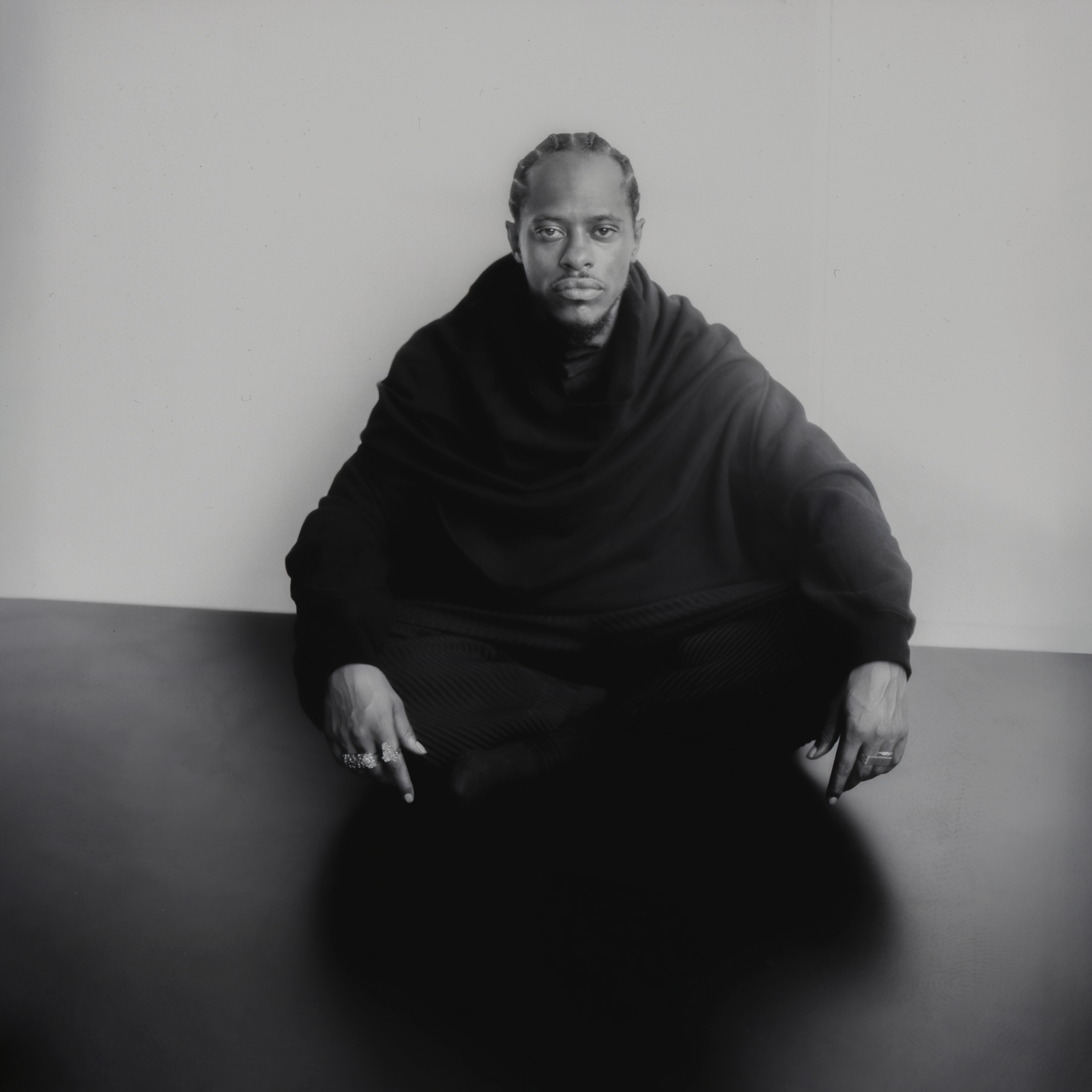Before we get started, and before you ask: Titus Andronicus' The Most Lamentable Tragedy is a great album, one you should hear. But I already wrote about it, so I'm not going to write about it again in this space.
The entire idea of the rap album is in a weird state of flux this year. The guy who made the year's biggest album insists that it's actually a mixtape, even though he's charging money for it. Meanwhile, the guy who made the year's best album, at least to my ears -- a warm and life-affirming and varied record that flies off in a million different sonic and lyrical directions -- gave the thing away for free on iTunes. The old model of the would-be-blockbuster major-label rap album -- possible singles surrounded by filler tracks designed to appeal to specific segments of a rapper's intended audience -- has fallen completely by the wayside, with some rare exceptions. Instead, most of the genre's biggest stars -- Drake, J. Cole, Kendrick Lamar, Future, Meek Mill to some extent -- aren't making songs for the radio. Instead, they're making albums that find their mood and stick to it, never really leaving that comfort zone. These days, more rap albums seem to follow the Flockaveli model. These are albums that could be mixtapes, but they're mastered better than the mixtapes, given maybe a tiny bit more melodic consideration. They can have big guests, but they don't have to. It's a great development, a sea change from the not-that-long-ago era when every big rap album was A&R'ed to death. And this week, we've got two great ones. I probably won't go long on Gunplay's Living Legend, so let me to take this moment to say that I recommend it without reservation. It's a mean-as-fuck banger-collection from a guy who I really, really thought would never get to release an actual album. And then there's the Migos.
Migos bubbled up out of the internet ether a couple of years ago: Three kids from Atlanta with tricky, overlapping flows and the ability to concoct maddeningly catchy, nagging, repetitive hooks. In their hands, a word like "Versace" could become a playground taunt and a rallying cry. They were on their way to cult stardom long before Drake jumped on one of their remixes, but that accelerated things. They've been steadily cranking out mixtapes and spare tracks ever since, and they've made actual hits without selling a single record. I was a bit alarmed when the group appeared on the FADER cover and Lyor Cohen, one of the people in charge of their careers, said that he wanted them to go to Sweden so that they could work with pop producers and "create something really global." Cohen is a genius of rap marketing, the guy who masterminded Def Jam's late-'90s comeback by signing guys like Jay-Z and DMX. These days, he's running 300 Entertainment and signing deals with street-rap prospects like Young Thug and Fetty Wap. But in this instance, he didn't know what the fuck he was talking about. If you threw Migos in the lab with Max Martin or Stargate, I can't imagine they'd make anything remotely as catchy as their 2014 mixtape hit "Fight Night." In that same article, Quavo, the group's de facto frontman, shared my skepticism: "Why Sweden, right? What's going on in Sweden?"
They didn't go to Sweden. Instead, Yung Rich Nation is an album that works just like the group's mixtapes. It's a collection of frantically catchy, rhythmically inventive street-rap that worms its way into your brain without compromising any of their joyous knucklehead charisma. The producers are Atlanta guys like Zaytoven and C-Note. Their beats are simplistic melodic loops, riffs that you could play on a piano or a keyboard with two fingers. The ad-libs work like giddy horn stabs, exclamation points that drive themselves deep into your brain: "Young rich niggas, we some bachelors! Oooh! Damn! Bachelor!" (They really like being bachelors.) The only guests on the album are Chris Brown, who doesn't really make sense next to these guys, and Young Thug, who absolutely does. And so the album works the way every Migos mixtape has worked in the past: It's fun as fuck to hear these guys flinging their voices against these tense and springy beats, bouncing all over the place like pinballs, making beautifully outlandish boasts: "When Offset got out of jail, he ate a bowl of hundreds!"
If anything is different, they're a bit more reflective and self-reflexive than they were in the past. They've been the subject of memes, and they know it, so they're making sly jokes about things like the whole "Migos are better than the Beatles thread." (Quavo on "Street Nigga Sacrifice": "They the Migos better than the Beatles! / Paul McCartney, I would like to meet him!") They're focused on their climb from poverty, as anyone who has climbed from poverty would have to be. On album opener "Memoirs," they kick around memories of all the shit they used to get into pre-fame and how they spent their money once they started making it. (Offset: "First check, bought a Audi coupe, it were black and grey like the Raiders!" Quavo: "First check, bought a Challenger, it was 10 bands, so I paid it!") But they're still the same kids, making the same sort of music, with the same impossible-to-replicate energy.
Like every important Southern rap entity who's come up in the past decade or so, the Migos have been the target of a ton of New York-centric rap-nerd harrumphing. If we listen to certain people, the Migos are shallow ringtone-rap babies who don't understand anything about rap's expressive power. But in some weird ways, the Migos are one of the most weirdly old-fashioned crews out there. For one thing, they're a genuine group, a rarity in the era of solo careers and squads. They don't just switch off verses; they trade off lines the way the Furious Five or Run-DMC used to do. They're famous for inventing new flows and cadences, something rappers used to actively try to do. Their beats are genuinely funky, and the use heavy DJ scratches on "Gangsta Rap," the same song where they proudly proclaim that "gangsta rap is back." And with "Highway 85," they prove themselves perfectly capable of knocking out an old-school storytelling song, putting together a breathless narrative about a high-speed chase: "I rolled down the window, it's the officer / Put his nose in my car and said he smelled the herb / He opened up the door, asked me can he search / Hell naw, officer, you know how much I'm worth?" It's another new trick from a group who seems to have an endless supply of them.
Yung Rich Nation is out 7/31 on Quality Control/300 Entertainment. Stream it at Pandora.
Other albums of note out this week:
• Titus Andronicus' massive, monolithic, overwhelming personal-demons rock opera The Most Lamentable Tragedy.
• Gunplay's fearsome headknocker Living Legend.
• CFCF's lovely, florid ambient experiment Radiance And Submission.
• Albert Hammond Jr.'s wizened solo move Momentary Masters.
• Seapony's melancholy, reflective A Vision.
• Lianne La Havas' inventively soulful Blood.
• SiR's indie-R&B debut Seven Sundays.
• Sianna Plavin's spare folk LP Go On Now.
• BEAK>'s split EP with themselves.
• Elbow's Lost Worker Bee EP.
• Noel Gallagher's High Flying Birds and Massive Attack member 3D's High Flying Birds In 3D remix EP.






